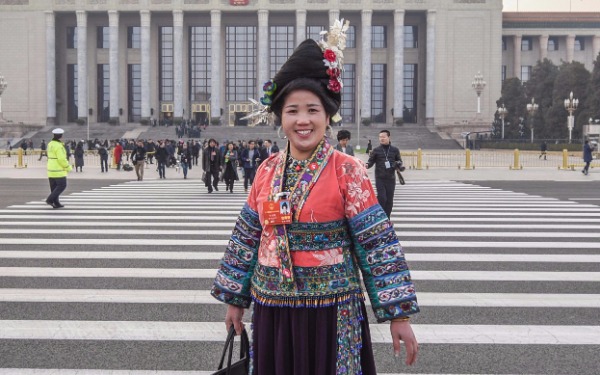 |
|
Wei Zuying has become a deputy to the 13th National People's Congress in Beijing.[Photo provided to China Daily] |
In 2010, Guangzhou's gross domestic product hit a record 1,000 trillion yuan ($160 trillion), putting it in third place among cities on the Chinese mainland, following Shanghai and Beijing.
That year, Wei Zuying, a migrant worker, left Guangzhou. By then, she and her husband had worked far from home - a small Miao village in Guizhou province, in Southwest China - for 10 years. In that period, they got the chance to see their families only once or twice a year. "It was sad that our son and our parents were left at home without my husband and me around," says Wei, 38, whose son is now 13 and daughter is 6."But it was not only us. Everyone in my village had left their children and parents behind."
This situation prompted Wei to return home where she started an embroidery clothing factory and shared her experience of running the factory with local people. The embroidery business led by Wei helped raise incomes and made it possible for women in the town to work near home.
When Wei started the factory, it was not easy. Then, she and her elder sister, Wei Peibei, managed to cobble up 200,000 yuan for the initial investment. And they spent half of the money on buying one machine.
A year later, they had made a profit of around 80,000 yuan. But, from then on, the factory grew rapidly.
Wei's factory now has six machines and some 10 employees, making an annual profit of 400,000 yuan. The goods produced by the factory include embroidered items, shoes and bags.
Initially, they got orders mainly from the neighboring Guangxi Zhuang autonomous region. But as business grew, her sister started her own factory in 2012.